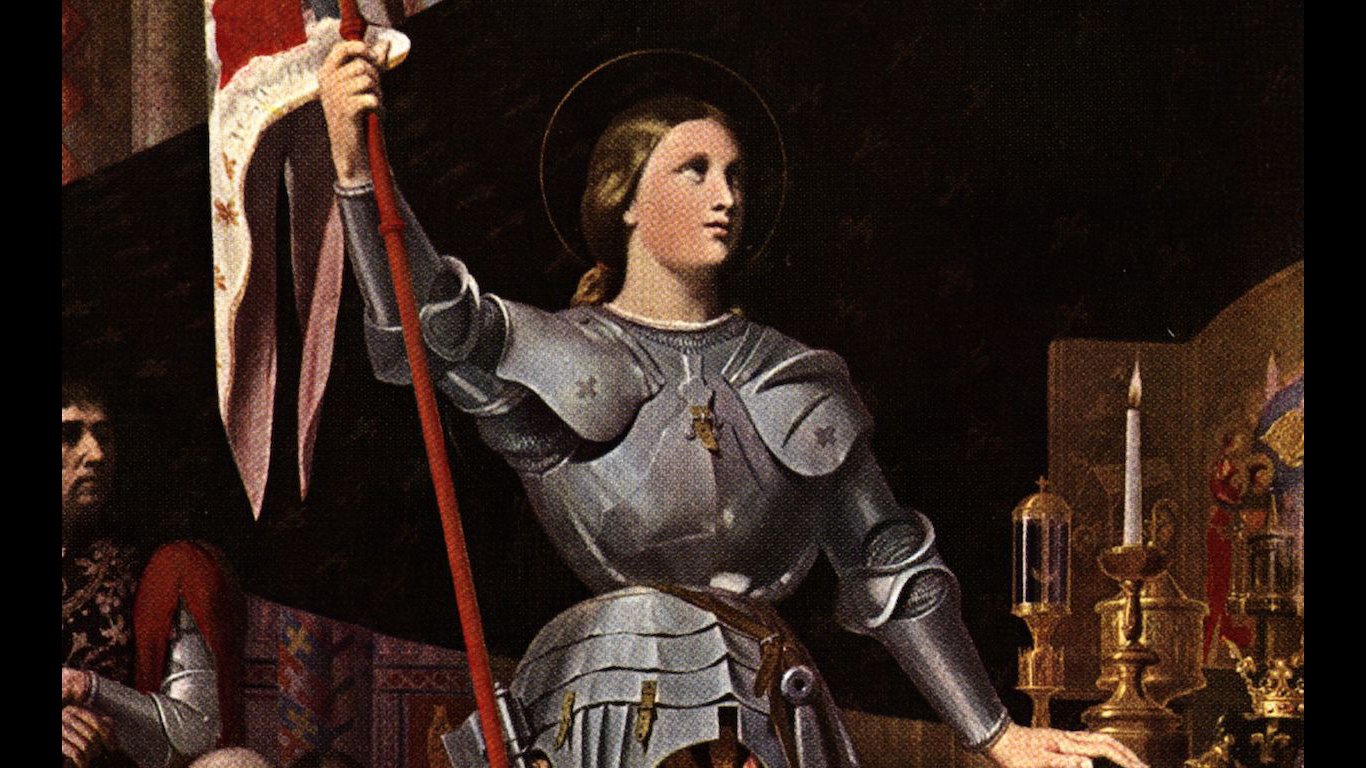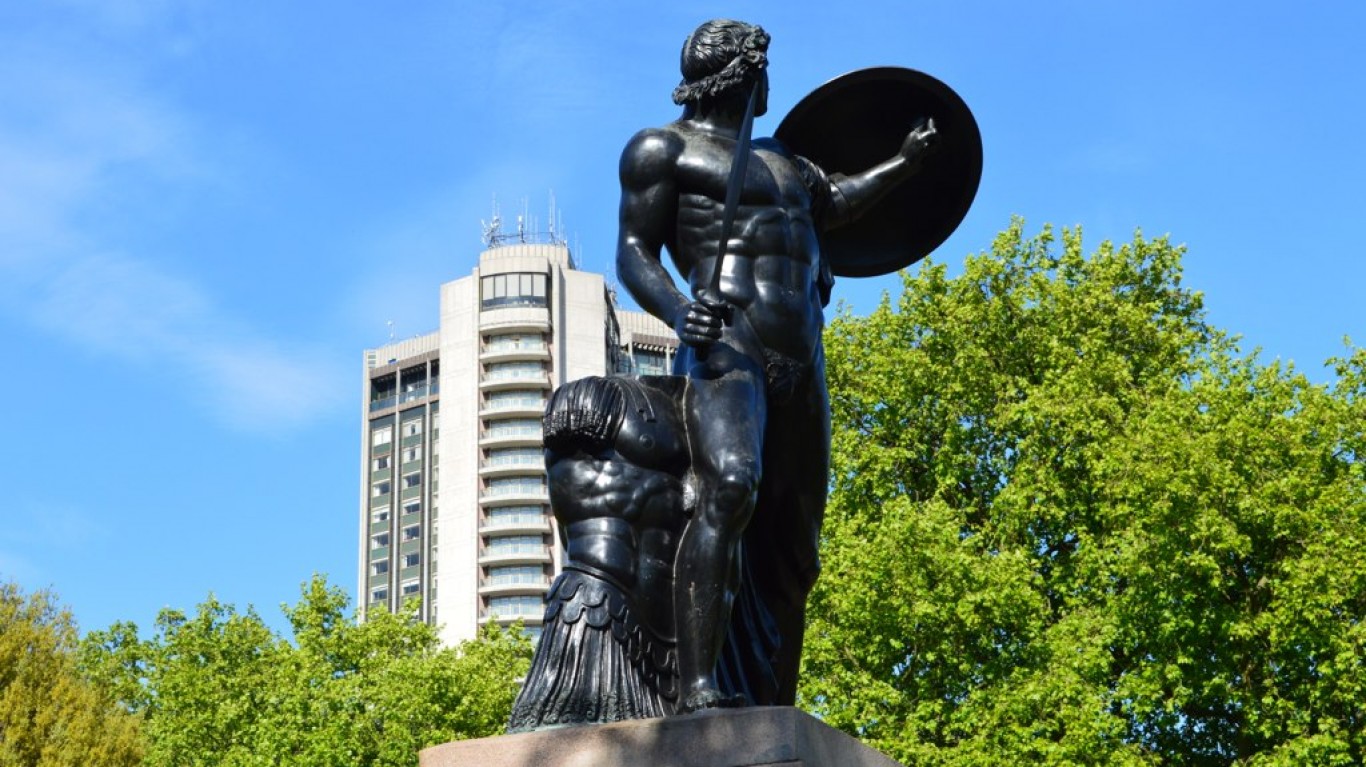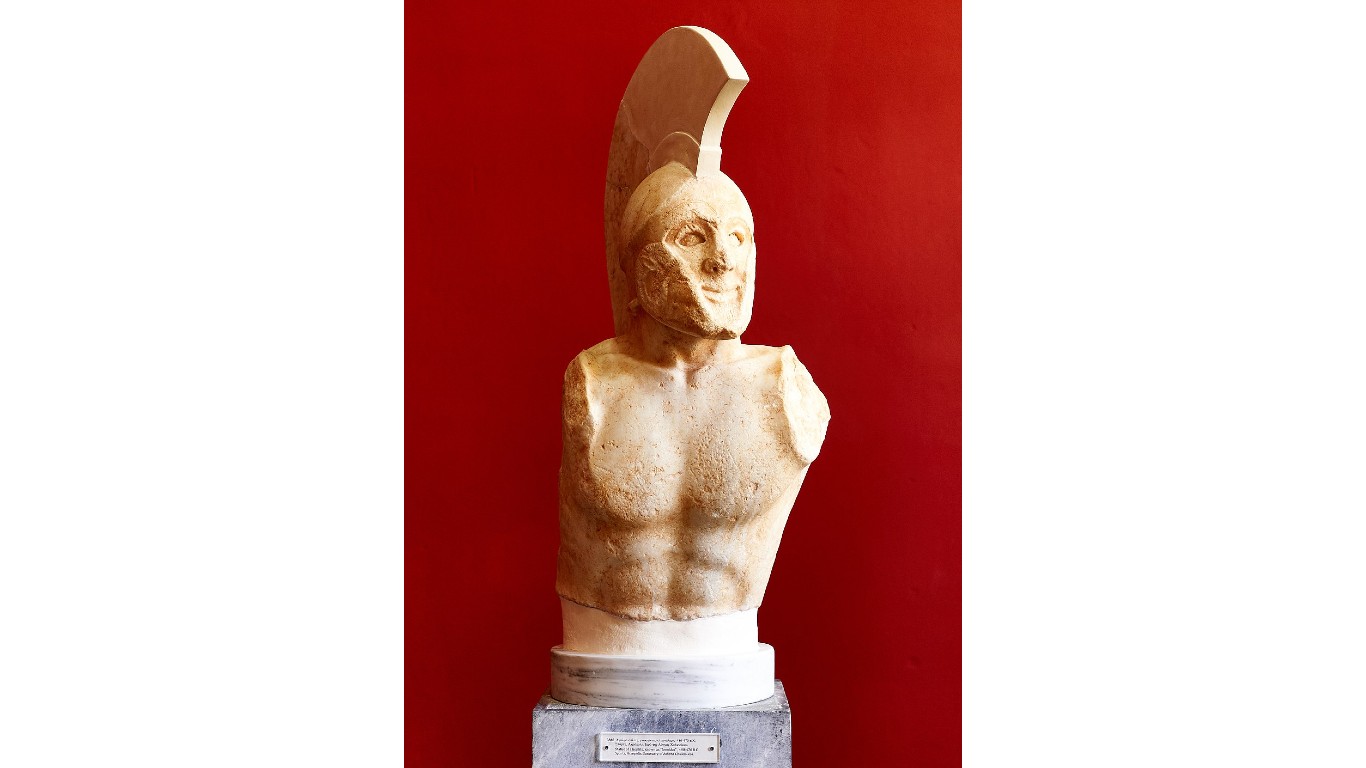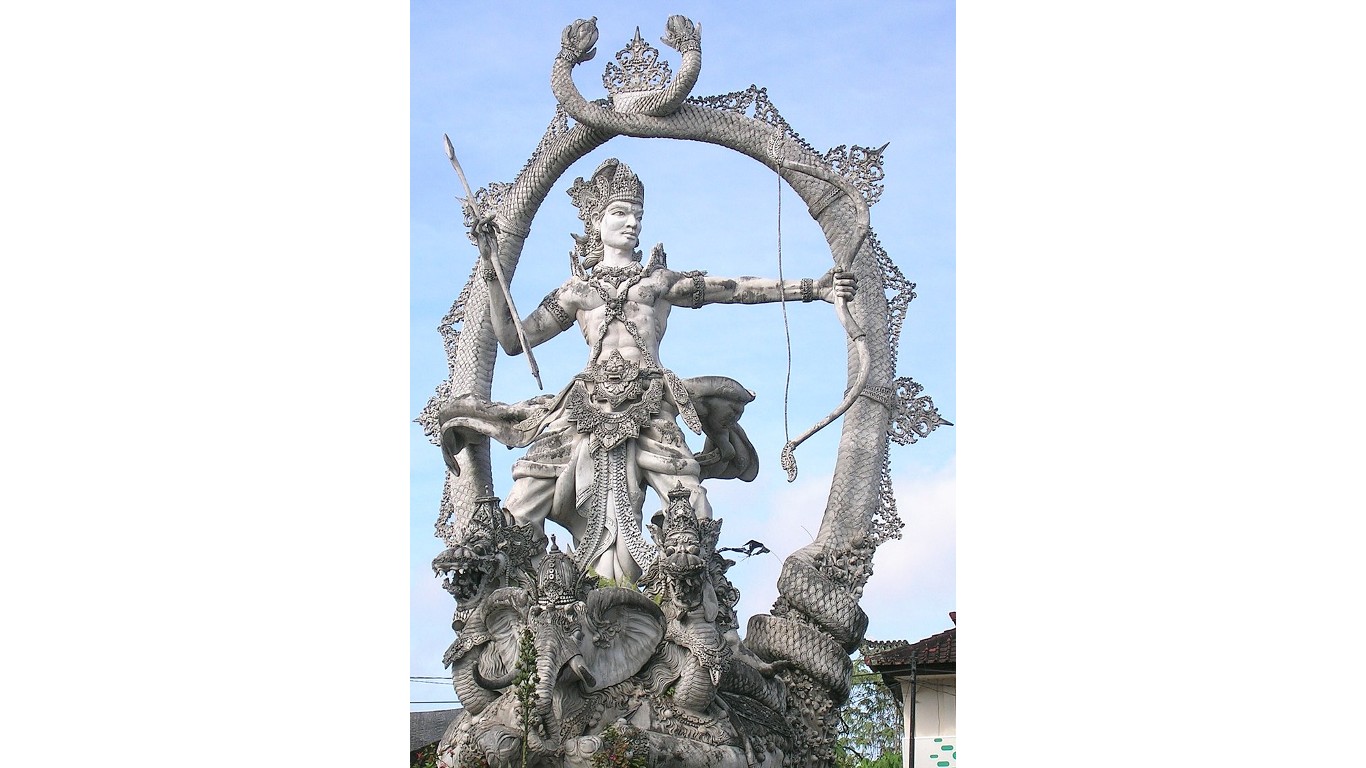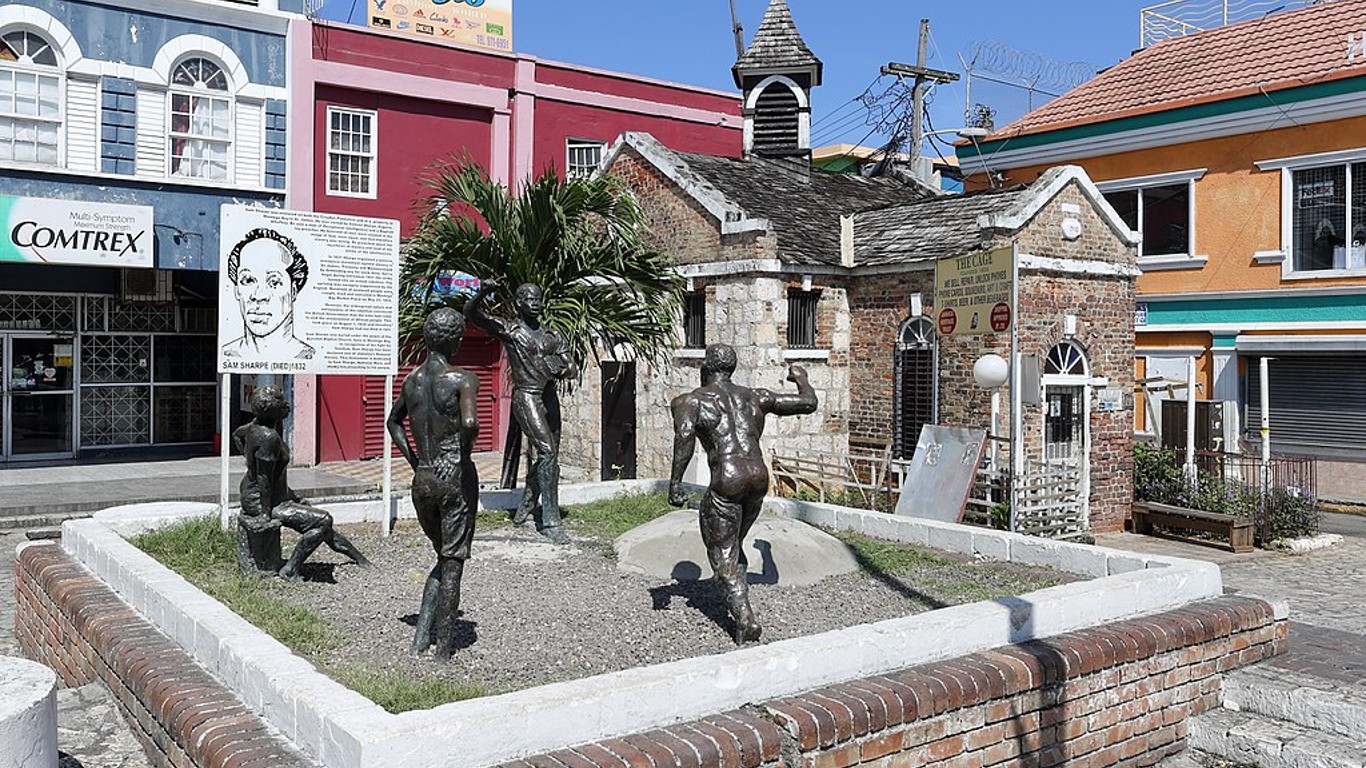War has created many legendary warriors. and throughout history, the world has largely been a melodrama of war and conquest. Beginning with the Mesopotamian War in 2700 BCE, to the numerous Civil Wars being waged today, these battles have been, and are, a constant part of human history. Despite the efforts of modern endeavors to curb imperialism and solve disputes through diplomatic means, the sad reality is that there have been more years of war than peace in recorded history. These are the 20 longest wars in history.
While some wars have lasted far longer than others, for decades and even centuries, as decisive victories failed to materialize. As seen in the current Russian invasion of Ukraine, a military force may not see success when its troops are discouraged, disorganized, and poorly supplied. The antidote to these shortcomings is often strong leadership.
Despite the fact that some armies are drafted or otherwise forced to fight, they may be more willing to risk their lives for a leader who is adept at boosting morale and modeling courage for their troops. History has seen many of these warriors inspire their forces to succeed in battle – or to die trying. Here are 50 of the most decorated war heroes in American history.
Warlords have emerged from all corners of the Earth. They have unified tribes and conquered others. A few – including Genghis Khan – have altered the course of history and left their marks on the demographics of countless countries. Some ruled with terror, others with keen diplomacy, and yet others – including Joan of Arc – believed in their divine appointment and inspired their followers to take on their holy mission.
While most of these historical leaders were undoubtedly real people, a few have reached legendary status, and their stories have been wildly embellished by historians with a penchant for the poetic. Others may be based on a real figure but are likely solely mythological.
To compile a list of 30 of the greatest warriors in history, 24/7 Tempo reviewed a list of famous warriors from various different eras and parts of the world as compiled by Biography Online. Warriors are listed in no particular order.
Here are the 30 most legendary warriors in history
Attila the Hun
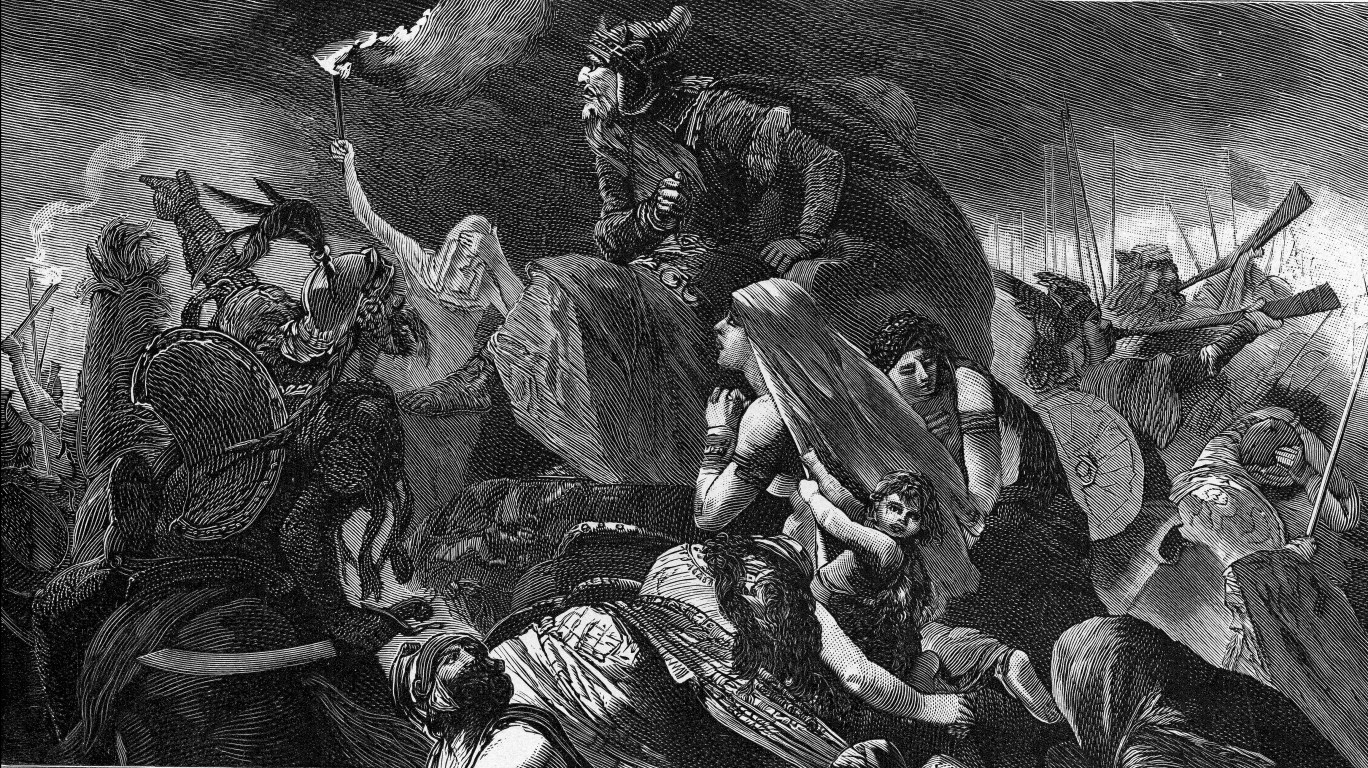
- Lived: 5th century
- From: Hun Empire
Attila the Hun was the fierce leader of a tribal empire of nomadic peoples from central Asia. He sacked and terrorized Roman cities as he expanded his empire. One of the most feared enemies Rome had ever faced, Attila combined a terrifying demeanor with judicious leadership skills that afforded him the allegiance of many Germanic and Turkic tribes, who joined him in battle against the Romans.
Sitting Bull

- Lived: 1831-1890
- From: America
A Hunkpapa Lakota leader, Sitting Bull killed his first buffalo at age 10, and by 14 was participating in raids. In the face of U.S. imperialism, he led raiding parties and attacks on forts and settlements and became the first chief of the entire Sioux nation. He is known for leading the united Sioux in their defense of their lands in battle against the U.S. Army.
Ragnor Lodbrok
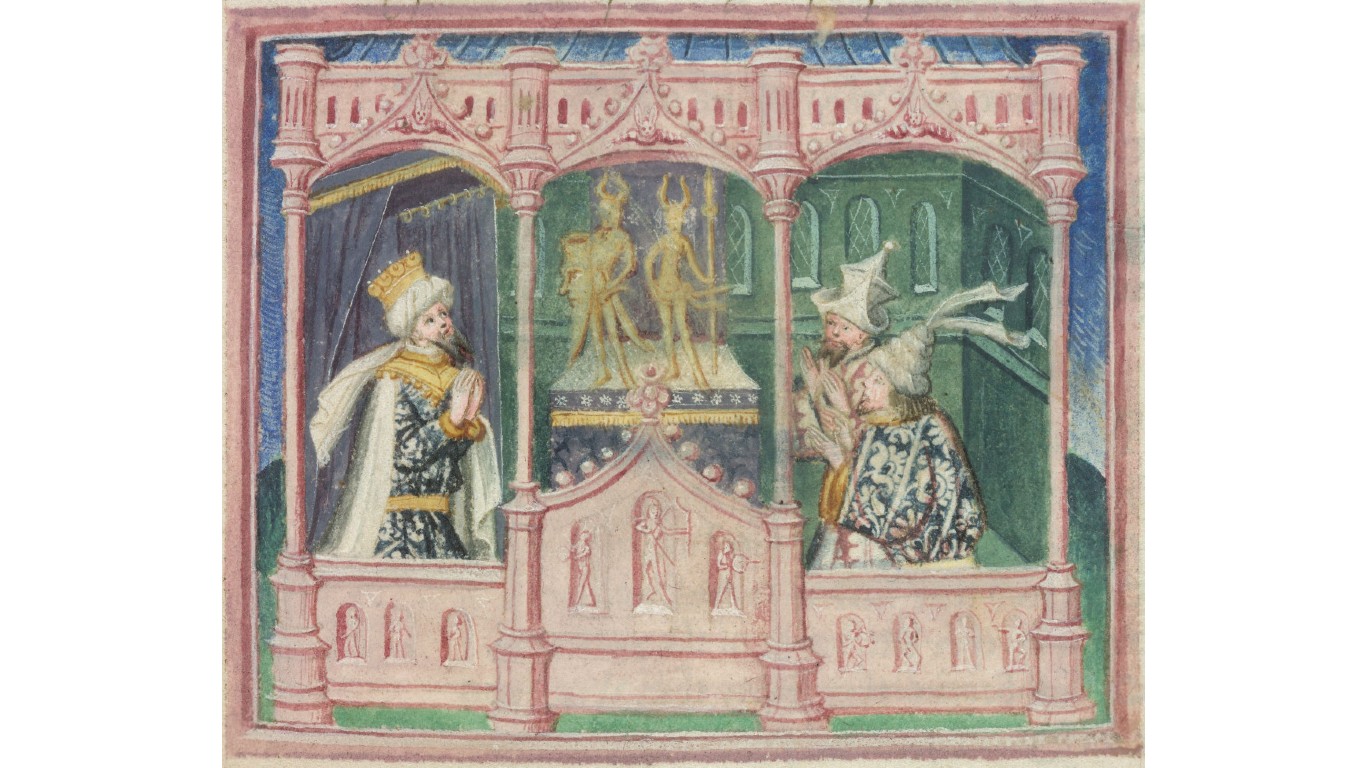
- Lived: 9th century
- From: Denmark, Sweden
Ragnor Lodbrok was a Viking warrior known from Old Norse poetry and Icelandic sagas. His exploits became legendary in medieval literature. He led successful raids from the Arctic north to the British Isles and France, eventually becoming king of Denmark and Sweden.
Saladin
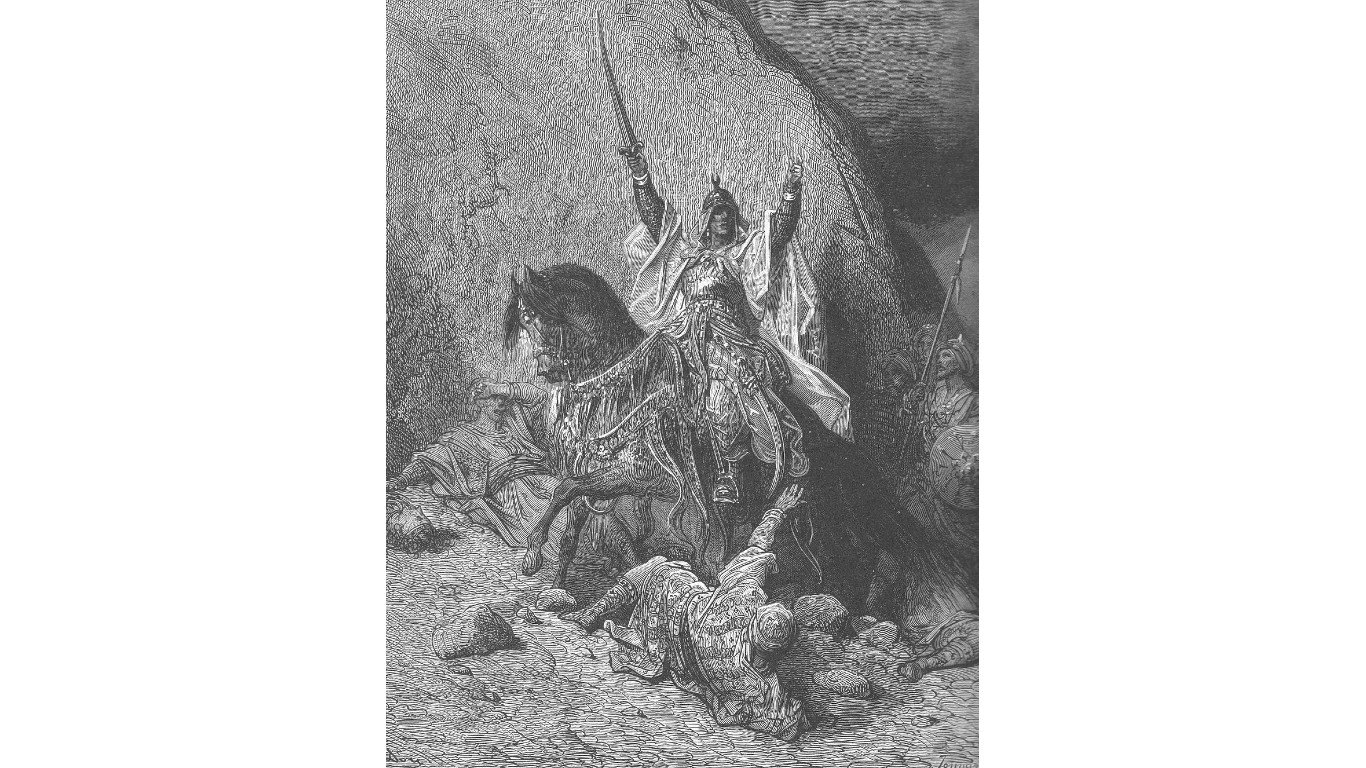
- Lived: 1138-1193
- From: Upper Mesopotamia
A Sunni Muslim Kurd, Saladin was an ambitious military leader and politician who became the sultan of Egypt before conquering Syria. He then captured Palestine, including the city of Jerusalem, from the Christians in 1187 and led a Muslim army against the Crusader states during the Third Crusade.
Xiahou Dun

- Lived: c. 190-220
- From: China
Xiahou Dun was a military general during the Eastern Han dynasty and has reached legendary status as a fierce warrior. At just 13, he killed a man for insulting his teacher. He is most famous for losing his left eye to an arrow during battle. Centuries later, the story was embellished to include the general pulling the arrow out and eating his own eye off it.
Achilles
- Lived: c. 13th century B.C.
- From: Greece
One of the greatest heroes in Greek mythology, Achilles killed many of Troy’s best warriors during the Trojan War, including the Trojan prince Hector, before he was finally slain by an arrow to the heel. His conquests, however, helped turn the tide of the war and set the stage for eventual Greek victory.
Hannibal Barca
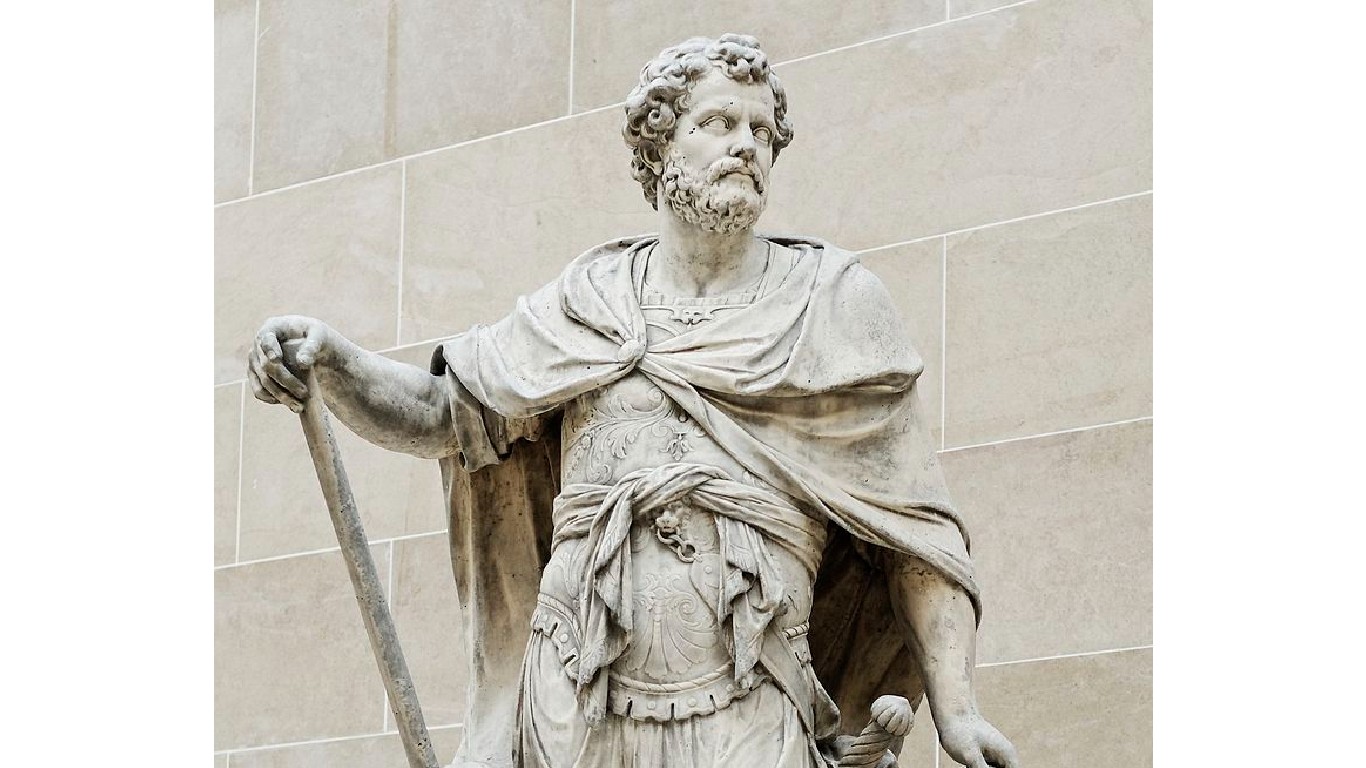
- Lived: 247 B.C.-181 B.C.
- From: Carthage
Hannibal Barca was the son of a Carthaginian general and eventually became a general and military strategist in his own right. He spent his life fighting against the Roman Empire and is remembered for leading his troops, including a team of elephants, across southern Europe and through the Alps to invade Rome. He is considered one of the greatest military leaders in antiquity.
William Wallace
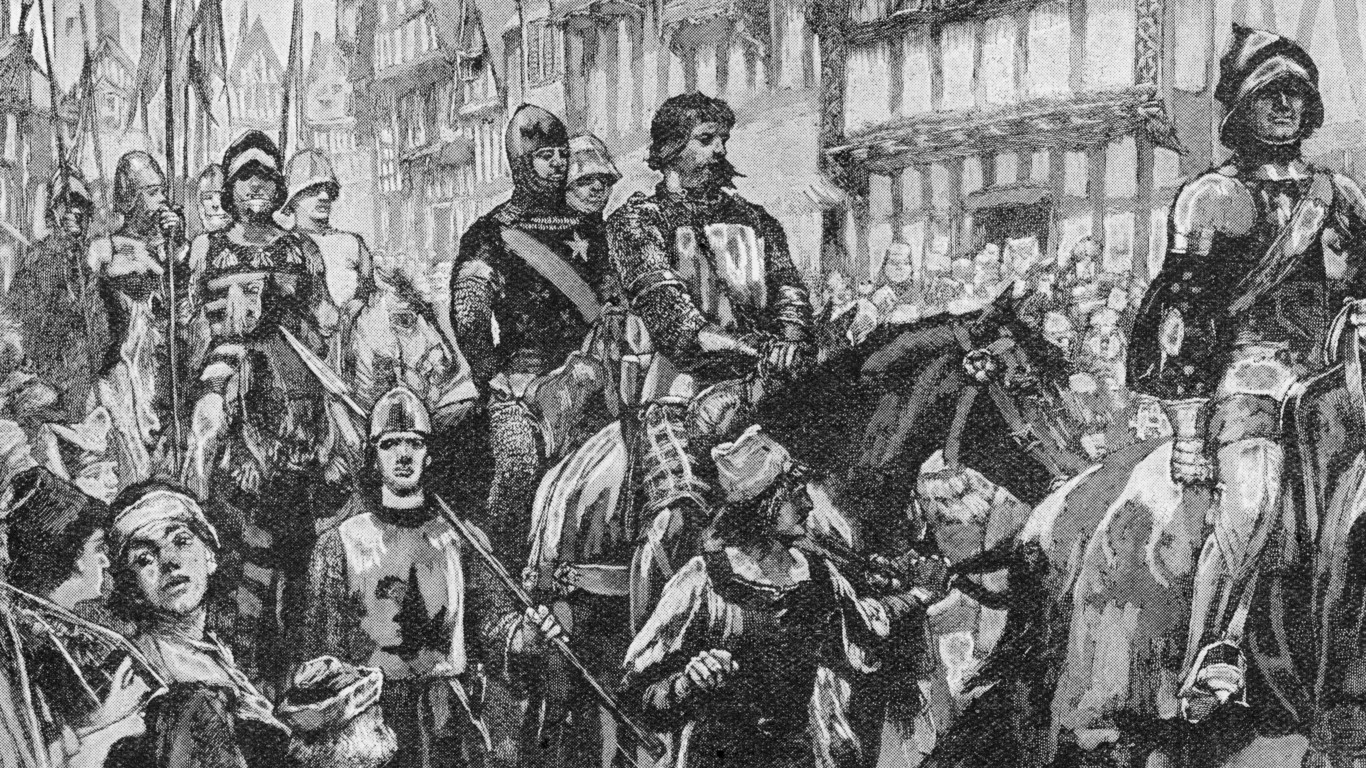
- Lived: 13th century
- From: Scotland
Sir William Wallace was a Scottish knight during the First Scottish War of Independence. He led his forces against the larger and more well-equipped English army and was granted the title of Guardian of the Kingdom of Scotland. Although he was eventually captured and brutally executed, his efforts united the people of Scotland against England and helped usher in their eventual freedom.
Miyamoto Musashi
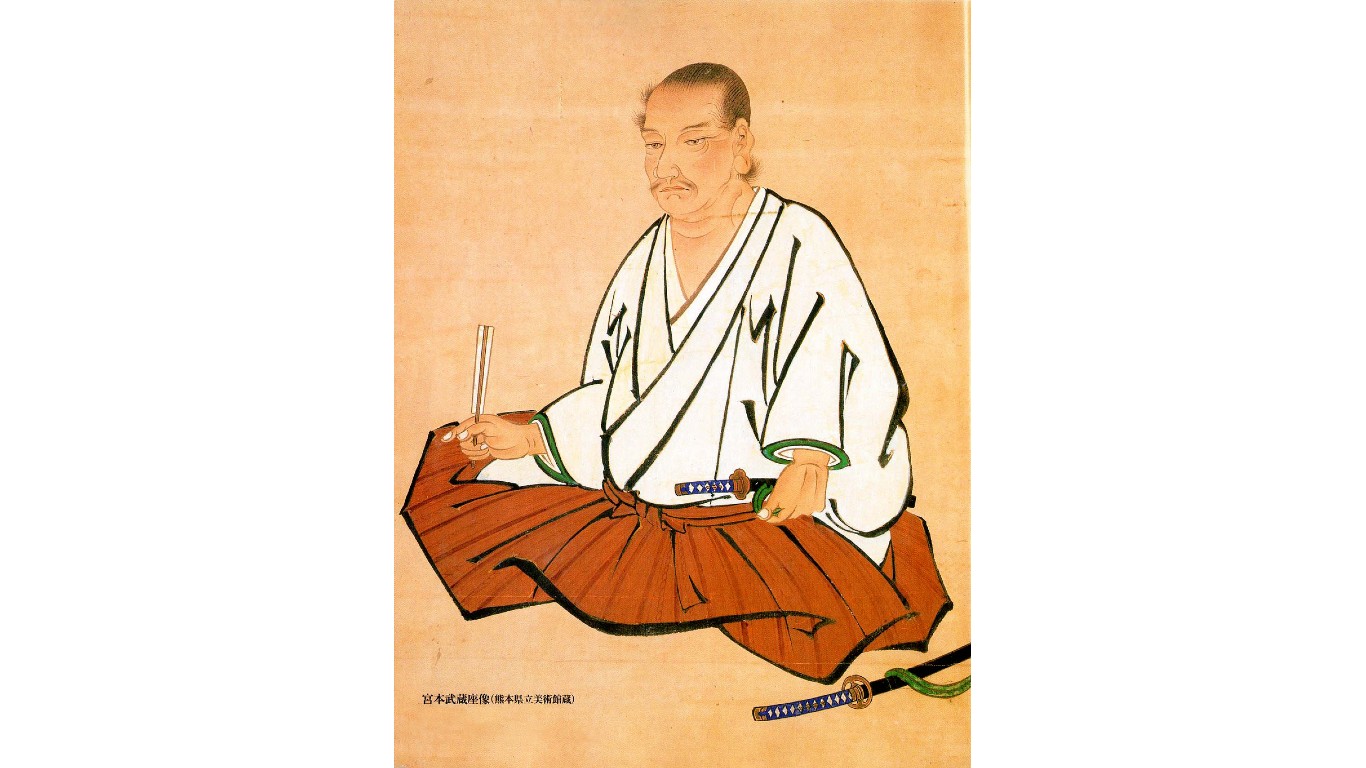
- Lived: 1584-1645
- From: Japan
Miyamoto Musashi was a skilled swordsman who invented a new style of fencing with two swords. He was an artist, soldier, and eventually rōnin (masterless samurai). He remained undefeated in duals at the time of his death and is widely regarded as the sword saint of Japan.
Cyrus the Great

- Lived: 600-530 B.C.
- From: Persian Empire
Cyrus the Great, also known as Cyrus II of Persia, conquered the Median, Babylonian, and Lydian empires and founded the Achaemenid Empire (also called the First Persian Empire). Although a cunning conqueror, he is remembered as a tolerant monarch who accepted and incorporated the various ethnicities and customs of the people in his empire.
Leonidas I
- Lived: c. 540-480 B.C.
- From: Sparta
Leonidas was a Spartan king during the Second Persian War and is remembered for exhibiting bravery against insurmountable odds when he held his ground against the invading Persian Army at the battle of Thermopylae. However valiant their efforts, he and his royal guard could not hold off the Persian forces and were wiped out.
Arjuna
- Lived: c. 5000 B.C.
- From: India
This mythical warrior prince was the protagonist of the Mahabharata and a key figure in the Bhagavad Gita. Arjuna was skilled at archery as well as music and dance. Through his many victorious battles, Arjuna followed the advice of the god Krishna and struggled through various ethical and moral dilemmas, including the prospect of killing his family members who were part of an opposing army.
Genghis Khan
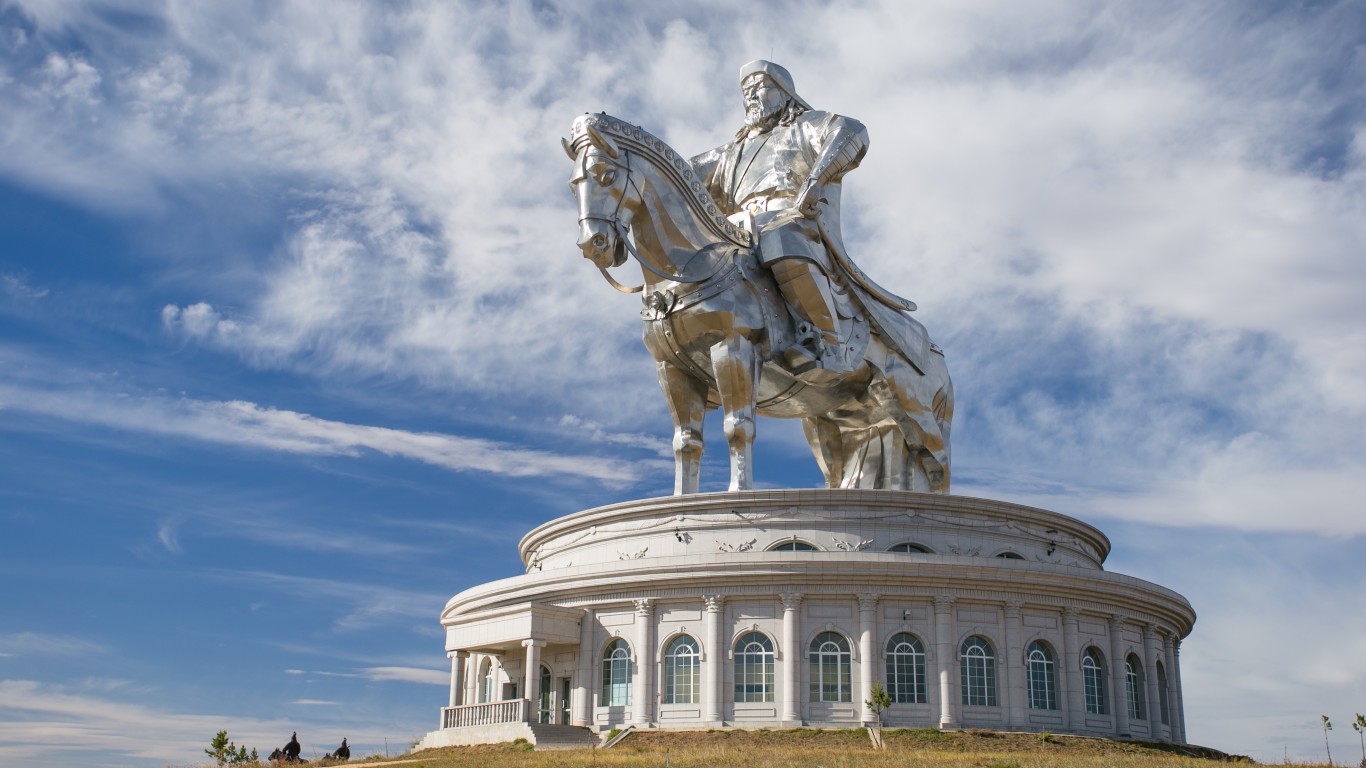
- Lived: 1162-1227
- From: Mongolian Empire
Genghis Khan was one of the most feared and successful conquerors in history. He united the nomadic tribes of Mongolia into a military force that he used to create an empire that stretched from China to Central Europe. His tactics of pillage and utter destruction dramatically altered the history of Eurasia, causing drastic demographic changes, population declines, and famines.
Alfred the Great
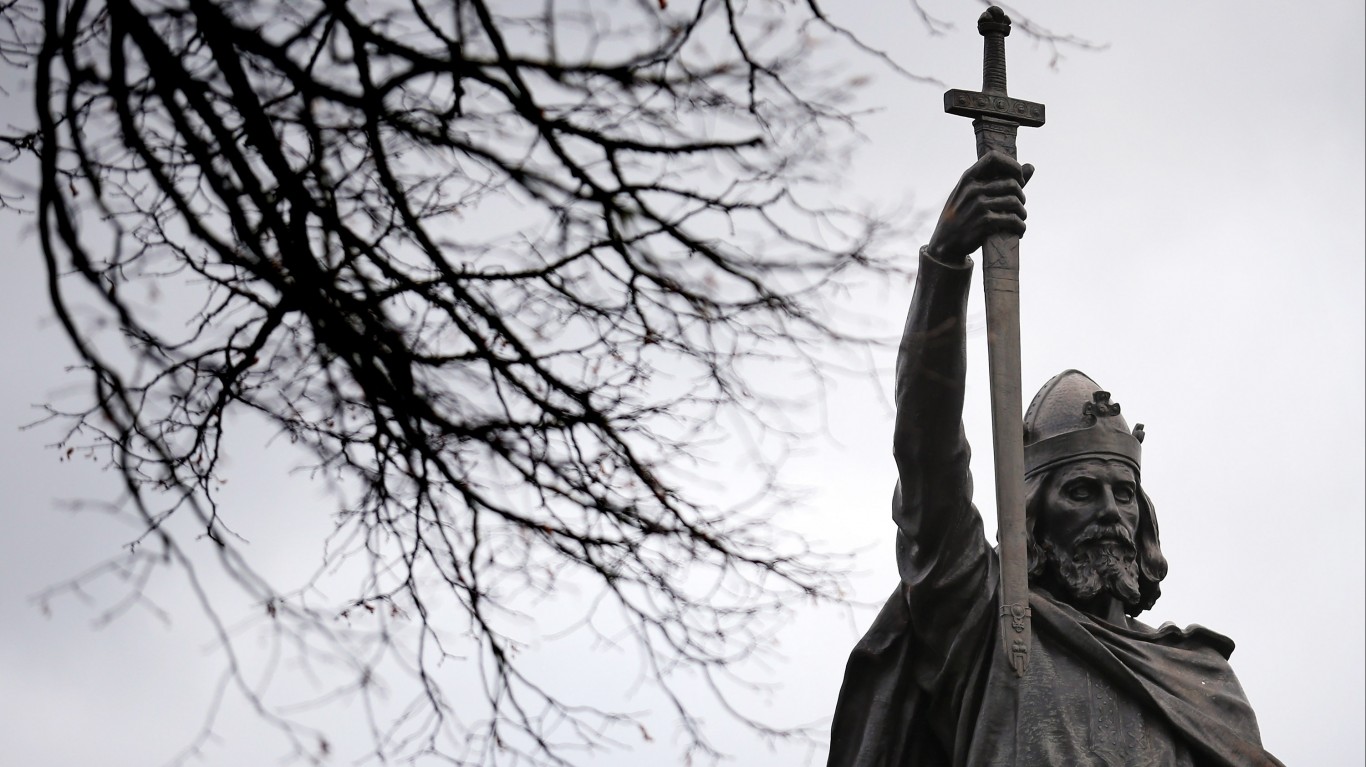
- Lived: 849-899
- From: Wessex
Alfred the Great was the King of Wessex during the time of Viking raids who fended off raiders for years. He finally won a massive victory against the army of Guthrum, the Viking ruler of East Anglia, at the Battle of Edington. Known as a level-headed and merciful king, Alfred proceeded to negotiate a peace treaty that defined the boundaries between his and Guthram’s territories.
Sun Tzu
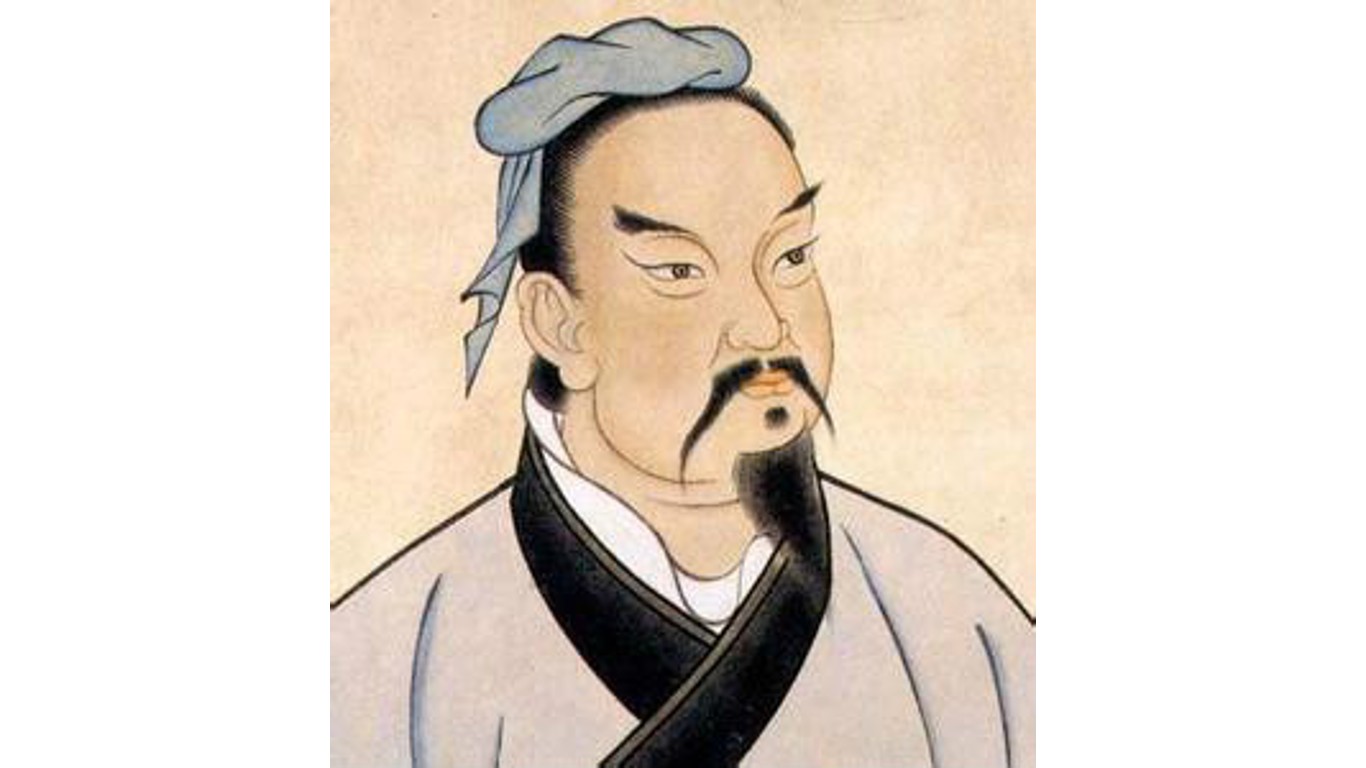
- Lived: 544-496 B.C.
- From: China
Sun Tzu was a military general and philosopher during the Eastern Zhou period. He is widely attributed with writing the military strategy treatise “The Art of War.” He preferred cunning over brute force and advocated the use of spies, delays, deceit, alliances, and even temporary submission to a more powerful foe in order to strike at the most opportune moment.
Boudicca
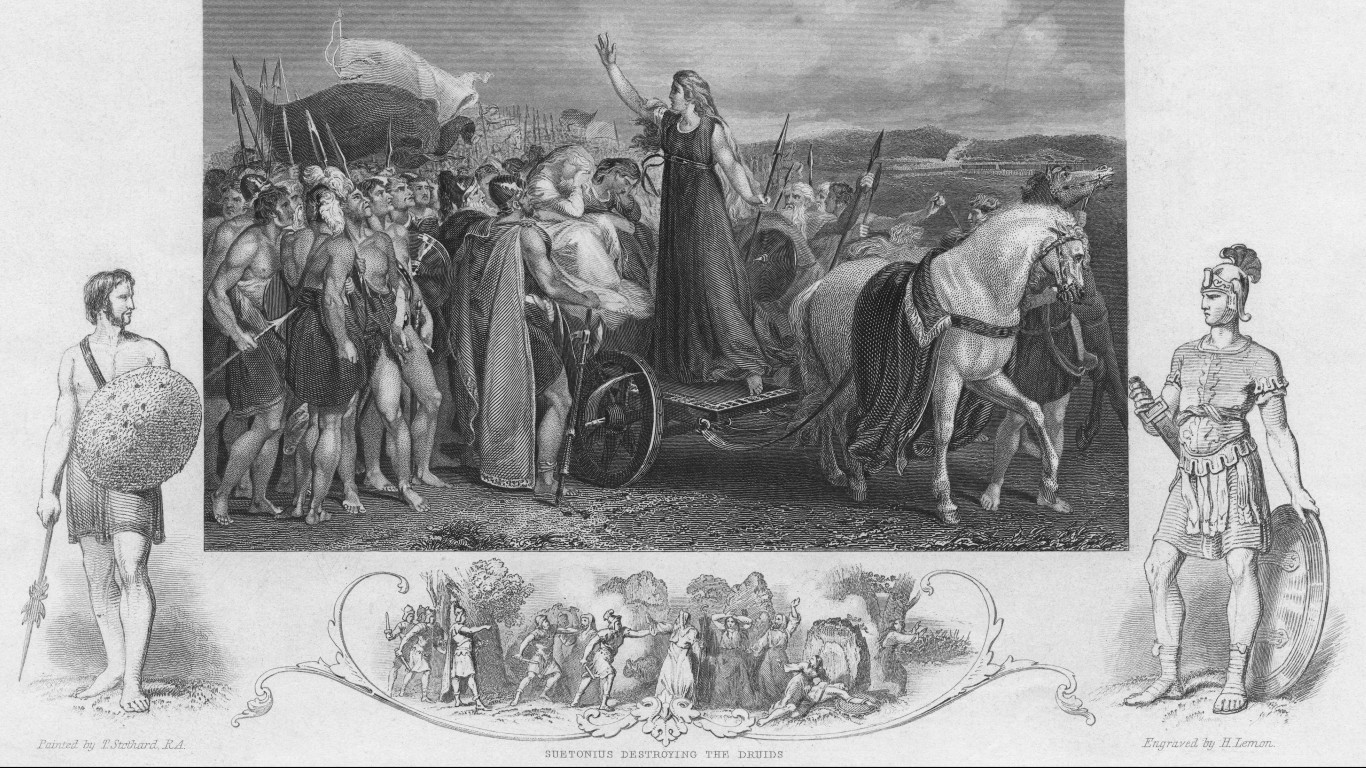
- Lived: 1st century
- From: Britain
Boudicca became queen of the Celtic Iceni tribe at age 18 when she married King Prasutagas. When the king died and Roman forces annexed his kingdom, Boudica formed an army of Iceni and other Celts and staged a revolt, destroying multiple cities that were under Roman control. In a final losing battle, she poisoned herself to avoid being captured.
Rollo of Normandy
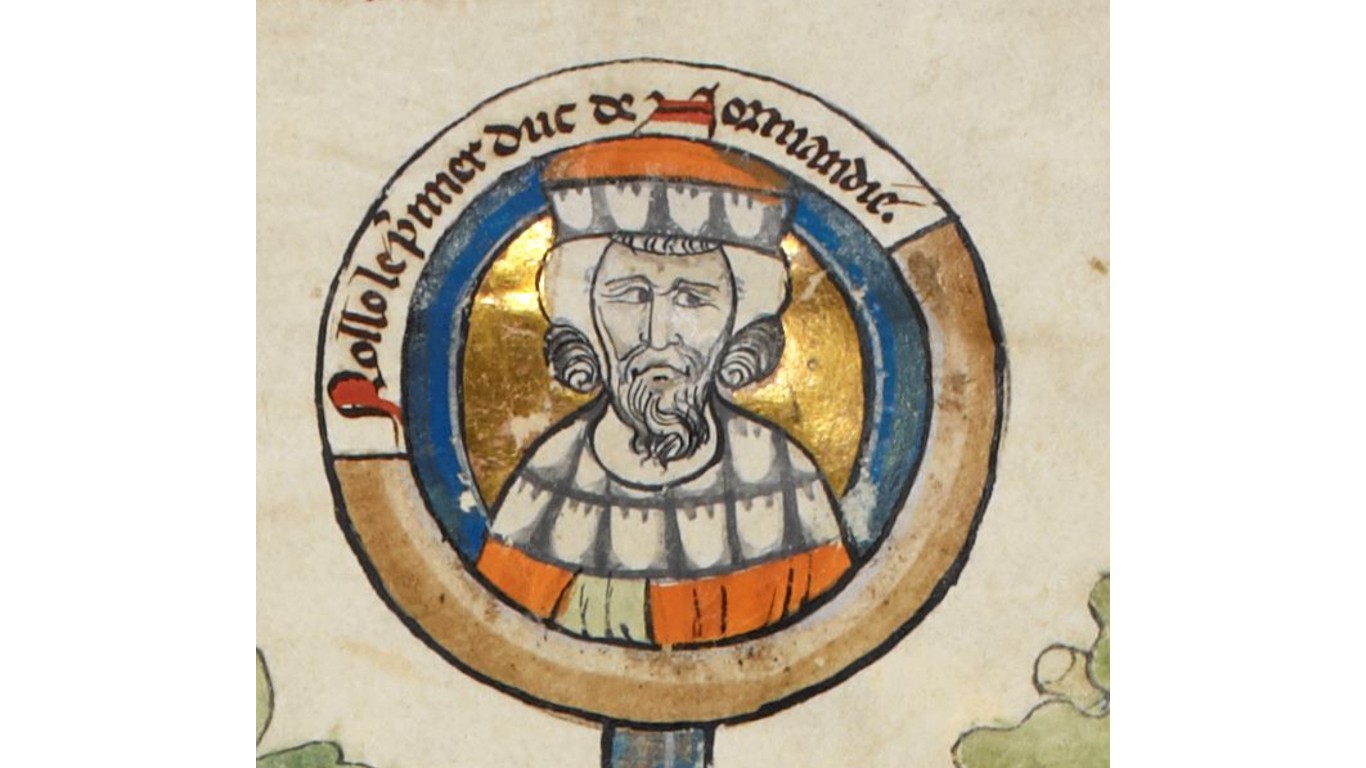
- Lived: 860-930
- From: Normandy
Rollo was a Viking warrior who conducted raids in the Kingdom of West Francia until he eventually took over Normandy, becoming the first ruler of the region. He ruled by a strict Viking code of law that emphasized personal honor and responsibility; petty crimes were punishable by death. Rollo’s descendants maintained control over Normandy until 1204.
Sam Sharpe
- Lived: 1801-1832
- From: Jamaica
Born into slavery in Jamaica, Sam Sharpe became a Baptist preacher and leader who planned and led the Christmas Rebellion, an 1831-1832 slave revolt that was instrumental in ending slavery not only on the island but in the whole of the British Empire. Sharpe was hanged for his part in the rebellion but was named a National Hero of Jamaica in 1975.
T.E. Lawrence
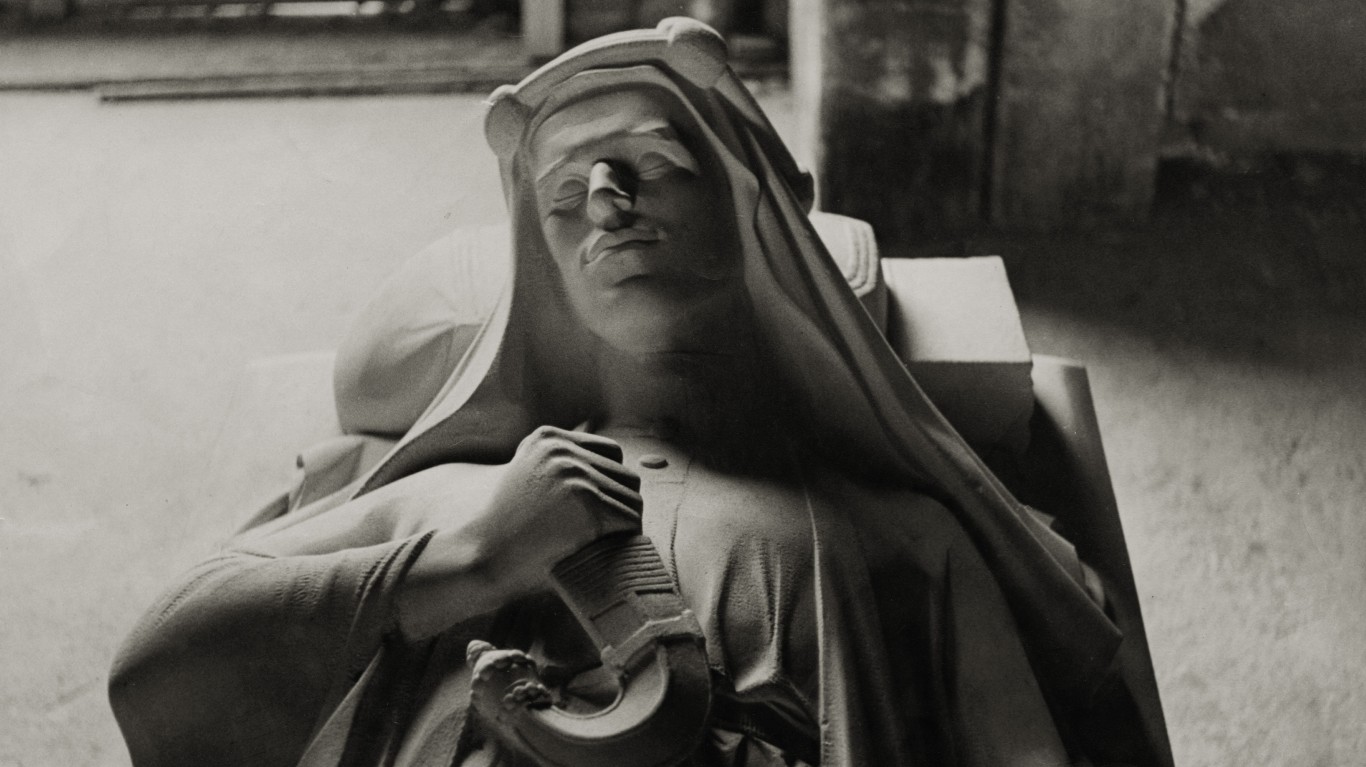
- Lived: 1888-1935
- From: British Empire
T.E. Lawrence was a teenager obsessed with the Crusades, who ran away from home to join the British Army. He eventually re-enlisted and went on to lead the Arab revolt against the Ottoman Empire during World War I, using unconventional tactics that earned him a place among the godfathers of modern guerrilla warfare.
William the Conqueror
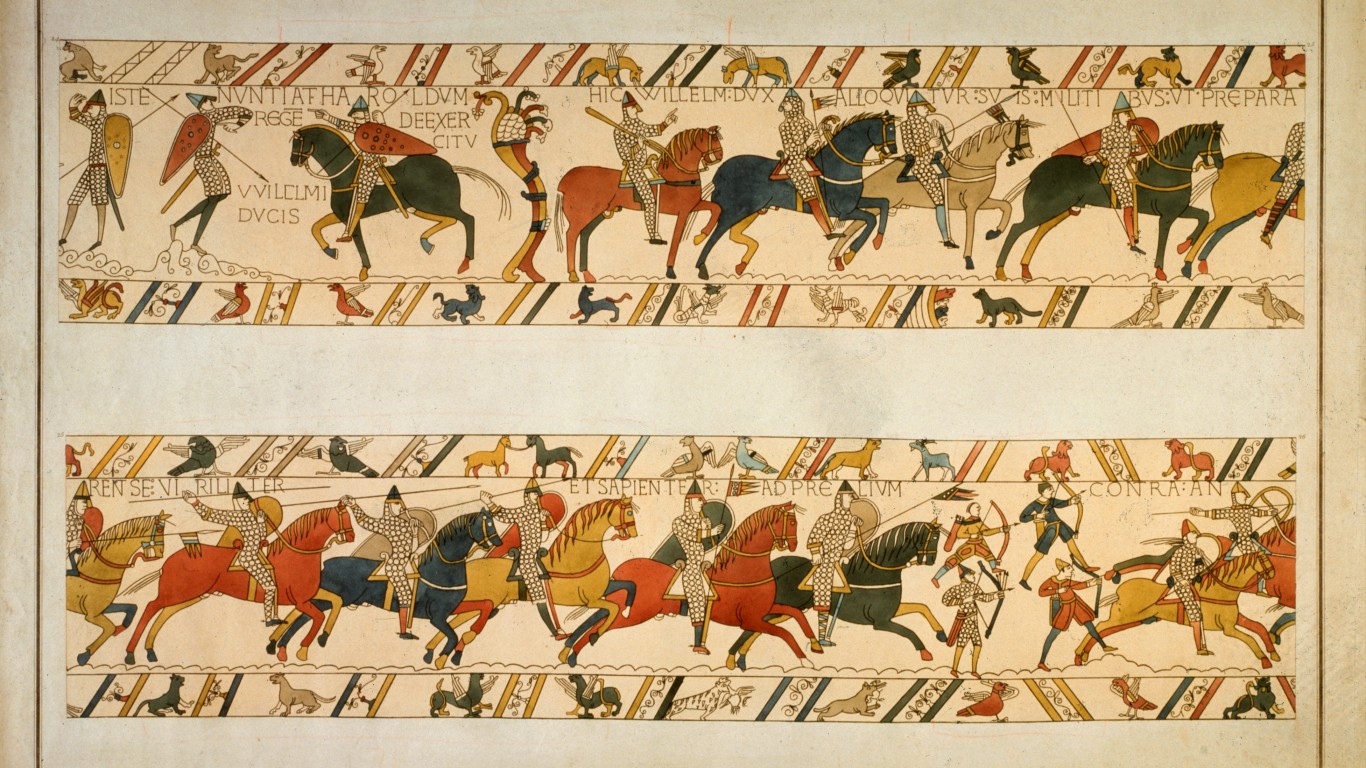
- Lived: 1028-1087
- From: Normandy
A direct descendant of Rollo of Normandy, William I was the Duke of Normandy and the mightiest nobleman in France. He changed the course of England’s history when he sailed across the English Channel and invaded Anglo-Saxon territory. After his victory at the Battle of Hastings, he became the first Norman king of England.
Akbar the Great
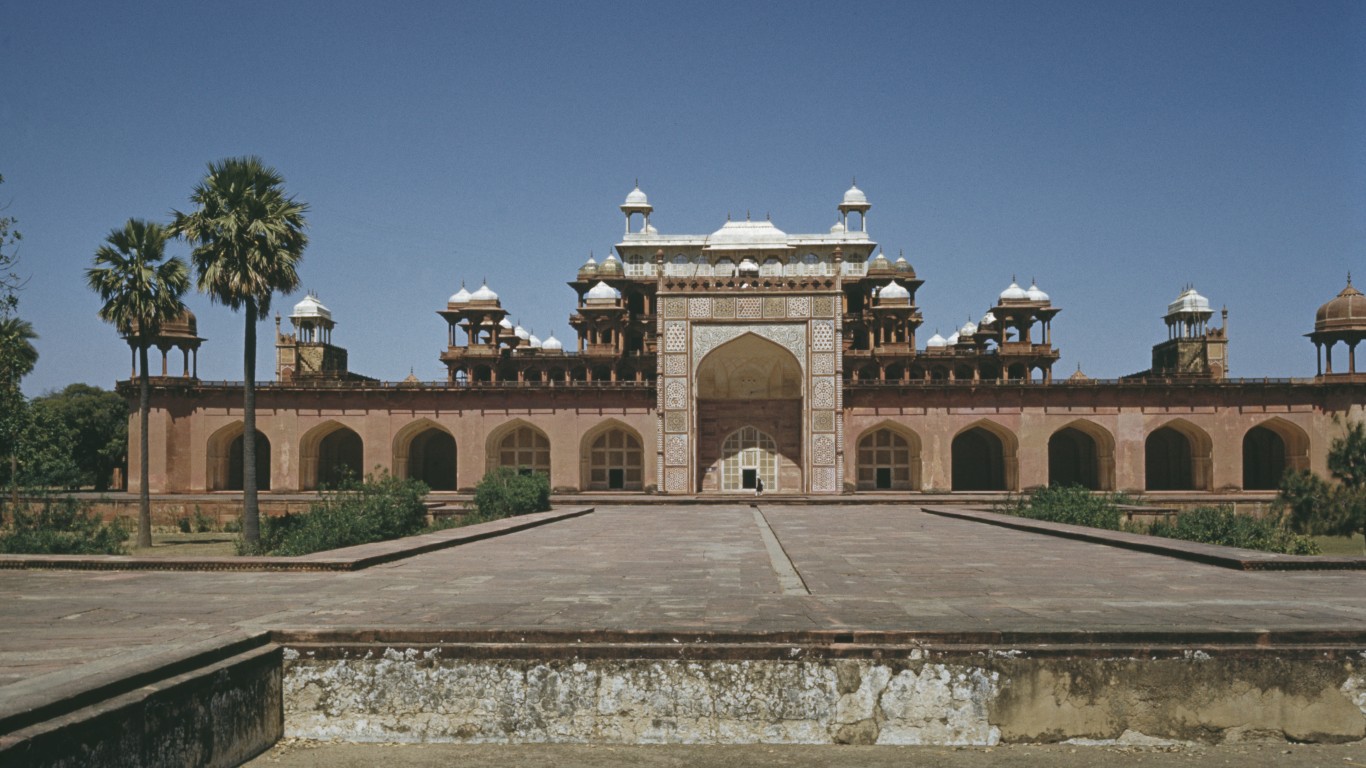
- Lived: 1542-1605
- From: Mughal Empire
The third emperor of the Mughal empire, Akbar I was a brilliant military general who expanded his kingdom to include most of the Indian subcontinent through both war and diplomacy. He unified and maintained general peace among Hindu and Muslim subjects by enacting policies of cooperation and religious tolerance and is remembered for stabilizing the economy and encouraging arts and culture.
Richard the Lionheart
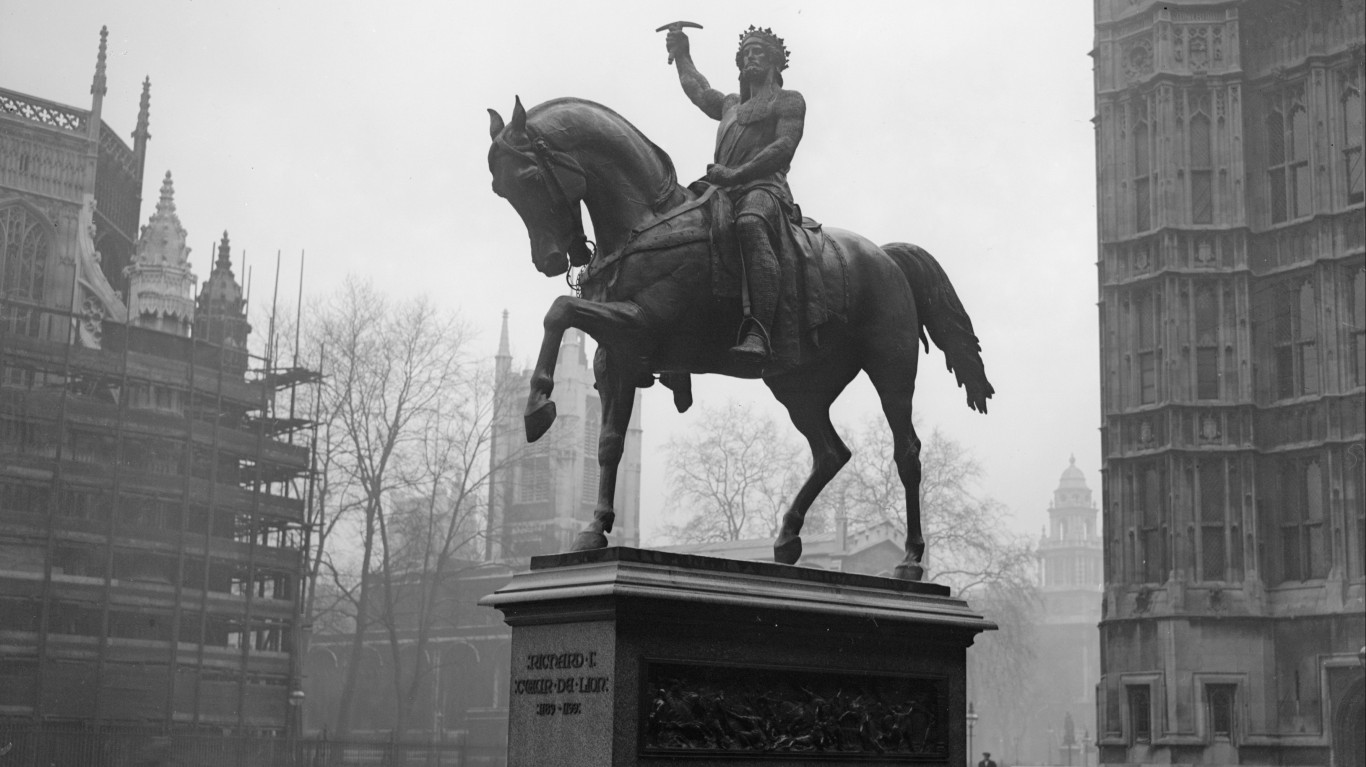
- Lived: 1189-1199
- From: England
As king of England, Richard I had little interest in sedentary rule. He dedicated his life to commanding an army during the Third Crusade. He won many battles against Saladin, who had taken control of Jerusalem. Despite his lack of royal responsibility, Richard was revered by his subjects for his courage and tenacity as a crusader.
Joan of Arc
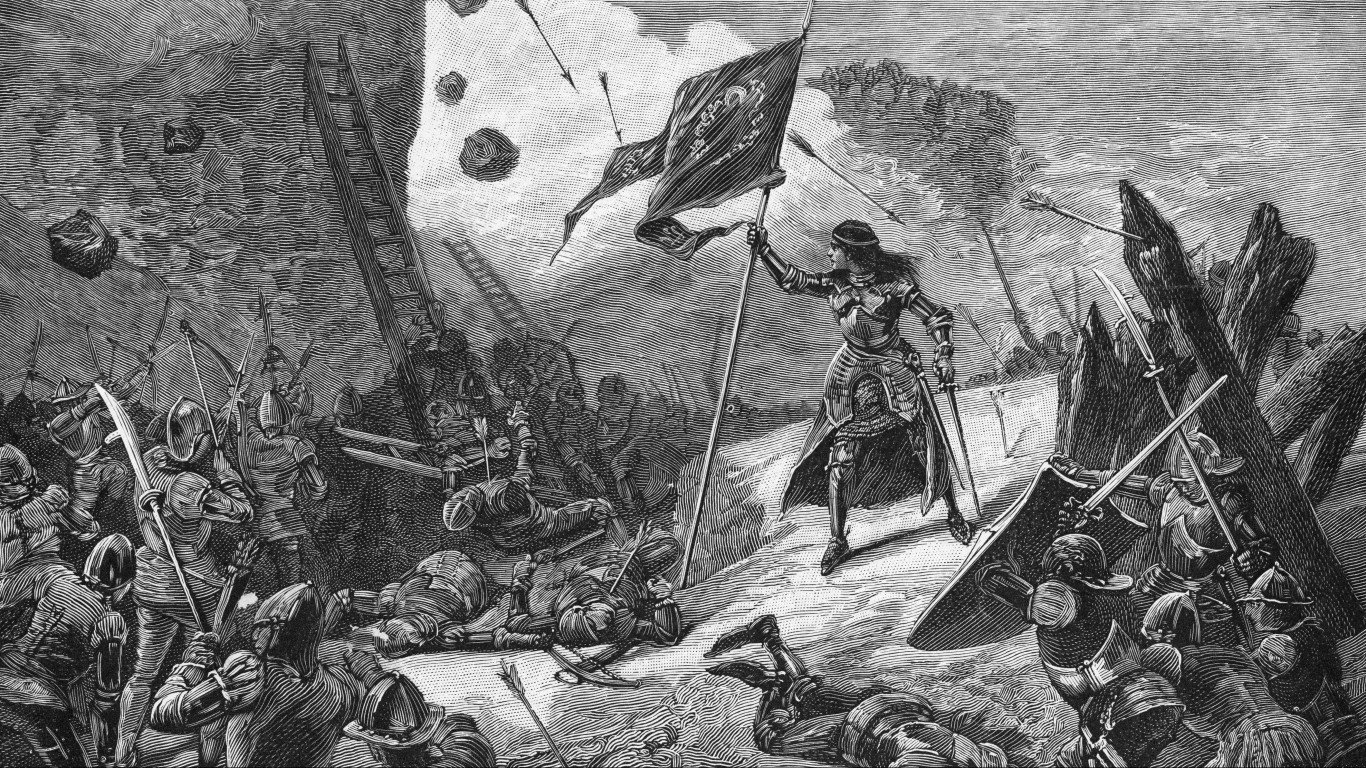
- Lived: 1412-1431
- From: France
Joan of Arc was born to a peasant family during France’s Hundred Years’ War with England. She began having “holy visions” as a teenager. She convinced King Charles VII to renew his fight against the English, to lend her armor, and let her lead troops into battle. Although she was wounded and eventually captured and burned at the stake for heresy, witchcraft, and dressing like a man, she was subsequently exonerated and canonized, becoming a patron saint of France in 1922.
Bhima
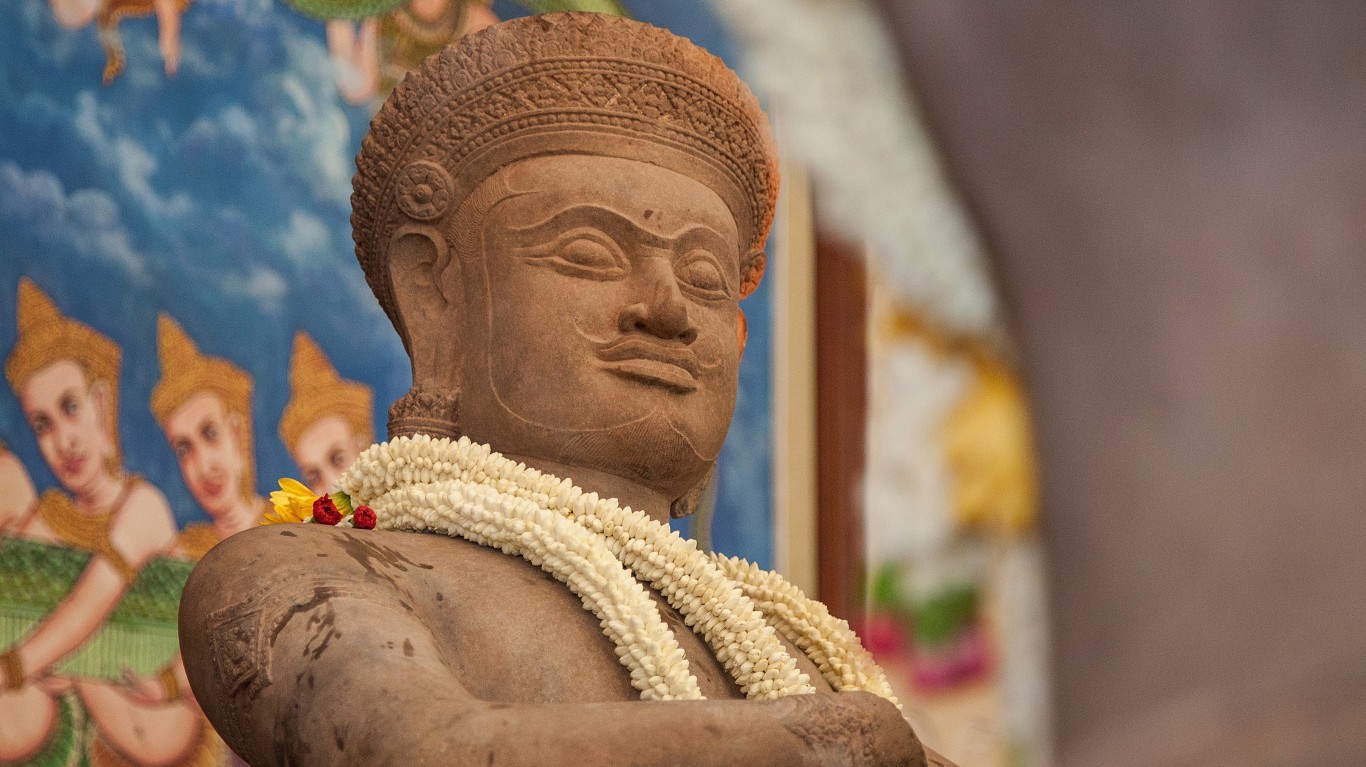
- Lived: c. 5000 B.C.
- From: Kuru Kingdom
Brother to Arjuna, Bhima was a central character in the Hindu epic The Mahabharata. He was considered the greatest warrior of the five Pandavas (sons of Pandu). Ferocious with a mace and talented at archery, he is said to have single-handedly killed over 100 men in the Kurukshetra war.
King Arthur
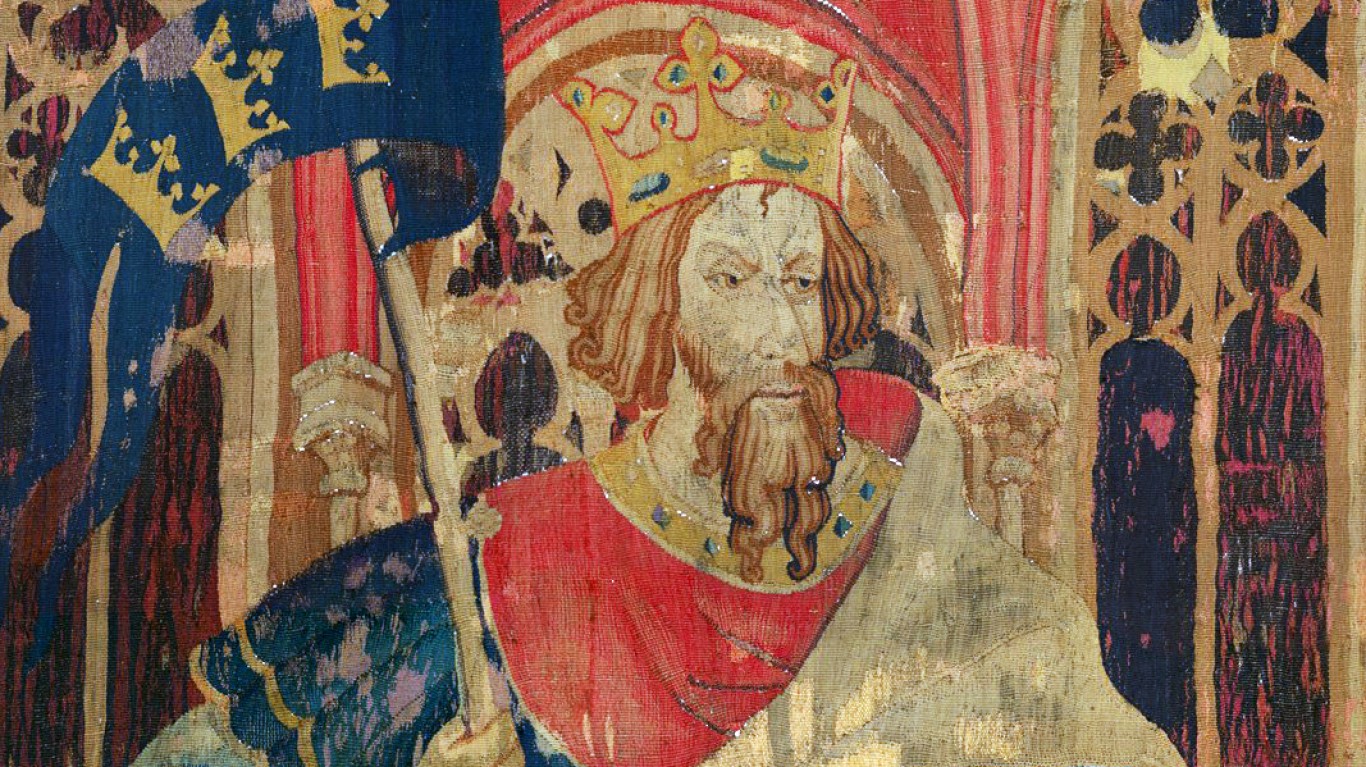
- Lived: 6th century
- From: England
King Arthur is said to have led the Welsh resistance against invading Saxon forces in the 6th century. This solidified his standing as a legendary leader in British folklore. According to the Welsh historian Nennius – who drew upon Welsh poetry as a source – Arthur fought in 12 battles, including the Battle of Badon, where he killed 960 men.
Simon Bolivar
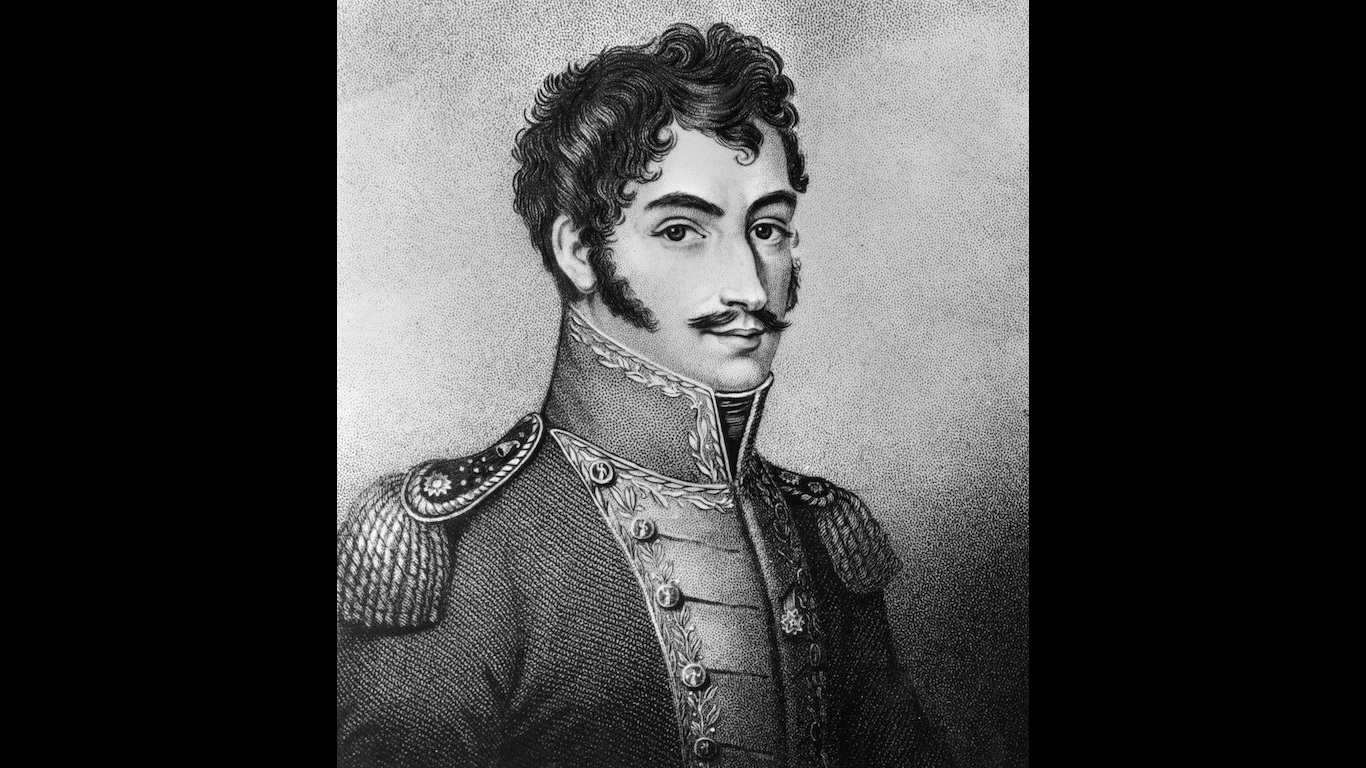
- Lived: 1783-1830
- From: South America
Also known as the Liberator, Simon Bolivar was a Venezuelan revolutionary who helped numerous Latin American countries gain independence from Spanish colonial rule. He won multiple decisive victories against the Spanish Royalist forces, securing independence for New Grenada. This area comprised what is now Colombia and Panama, as well as parts of Brazil, Peru, Venezuela, Costa Rica, and Ecuador.
Spartacus
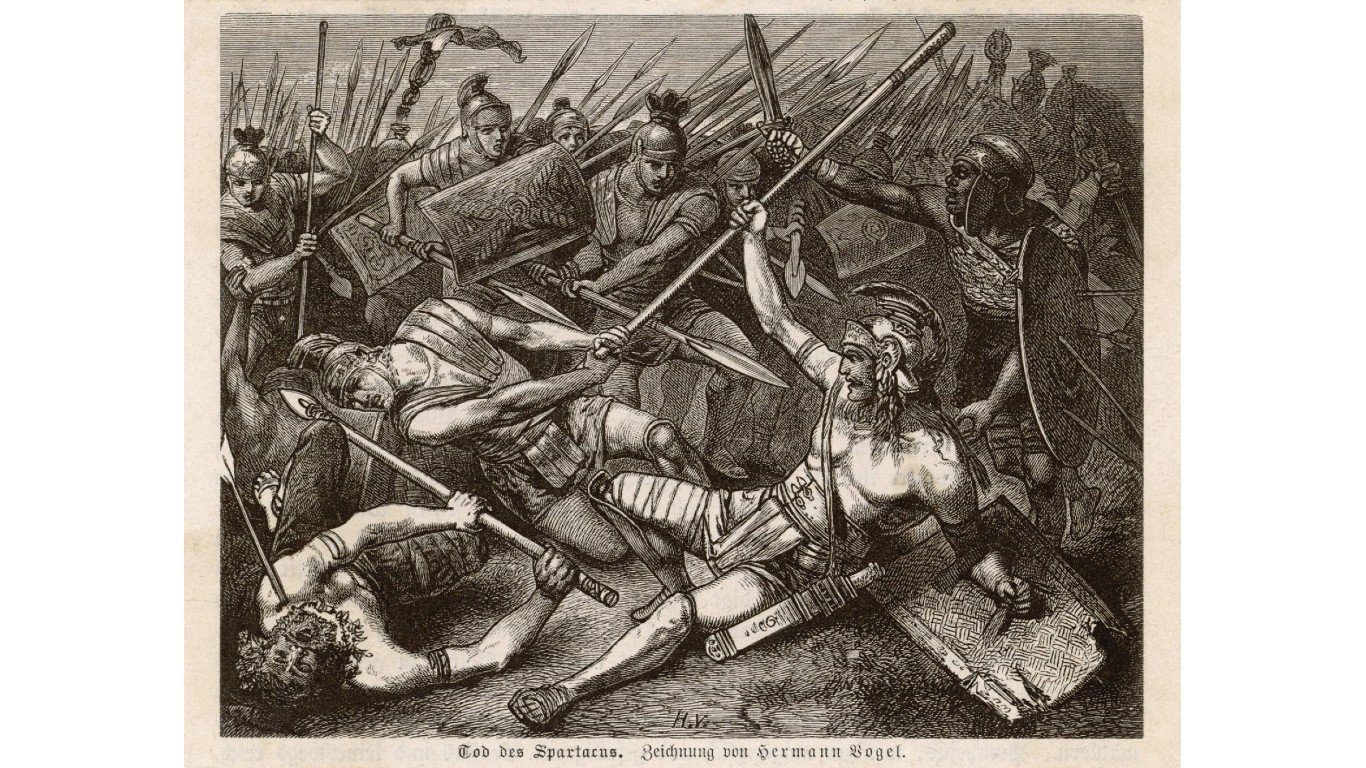
- Lived: c. 109 B.C.-71 B.C.
- From: Roman Empire
A Thracian man who’d previously served in the Roman army, Spartacus was eventually sold into slavery. As a gladiator slave, he helped over 70 gladiators escape captivity and went on to lead a slave revolt with an army of tens of thousands of men. They defeated Roman forces numerous times until Spartacus was finally killed in 71 B.C.
Nat Turner

- Lived: 1800-1831
- From: United States
Nat Turner was an educated preacher born into slavery in Southampton County, Virginia. He united his free and enslaved Black neighbors in a multi-day rebellion that would be the most deadly slave revolt in U.S. history. Over 50 white slave owners and others were killed, sparing some of the poorer households. The rebellion was quickly suppressed and the retaliation was severe. Turner was eventually captured, tried, and hanged, but he stood by his principles and later became a hero and an icon for the ’60s Black Power movement.
Alexander the Great
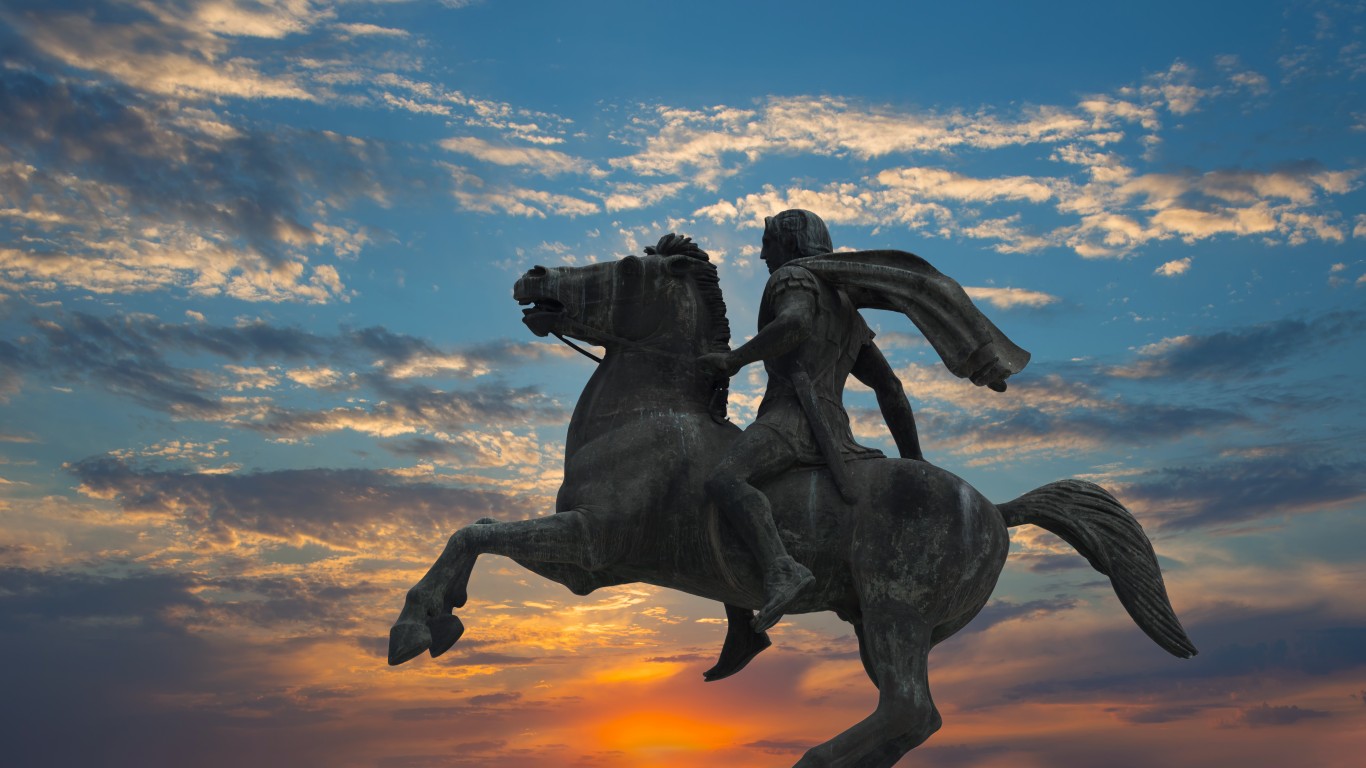
- Lived: 356-323 B.C.
- From: Macedonia
Alexander the Great was a Macedonian King and brilliant military leader. The largest empire that the ancient world had ever seen was created by him. This ushered in the Hellenistic Period of Greek influence. He led his armies from the front line and inspired such loyalty in his men that they were willing to follow him anywhere.
Julius Caesar
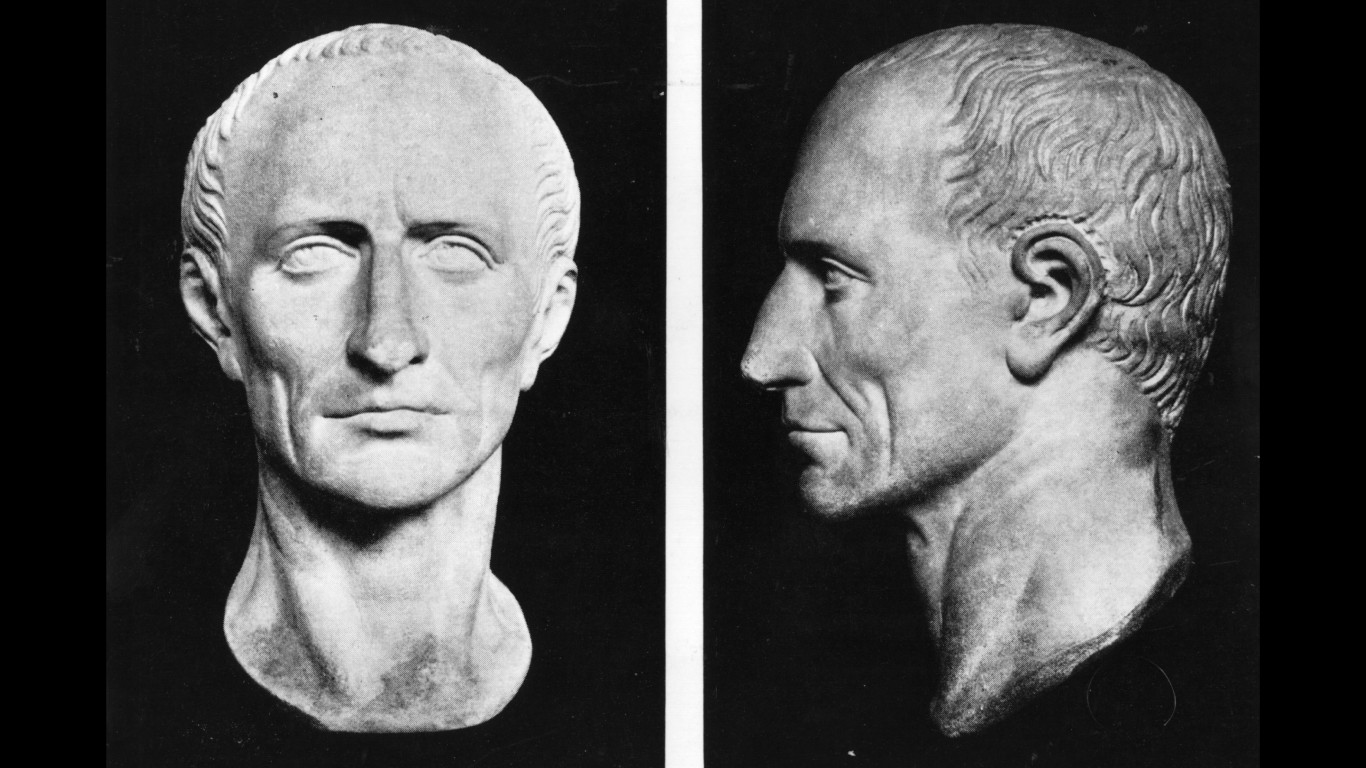
- Lived: 100 B.C.-44 B.C.
- From: Roman Empire
Julius Caesar was a skilled imperialist military commander. He conquered Gaul and helped Rome transition from a republic to an empire. He was revered by his troops and his contemporaries. This resulted in him becoming the first Roman granted divine status by the state.
